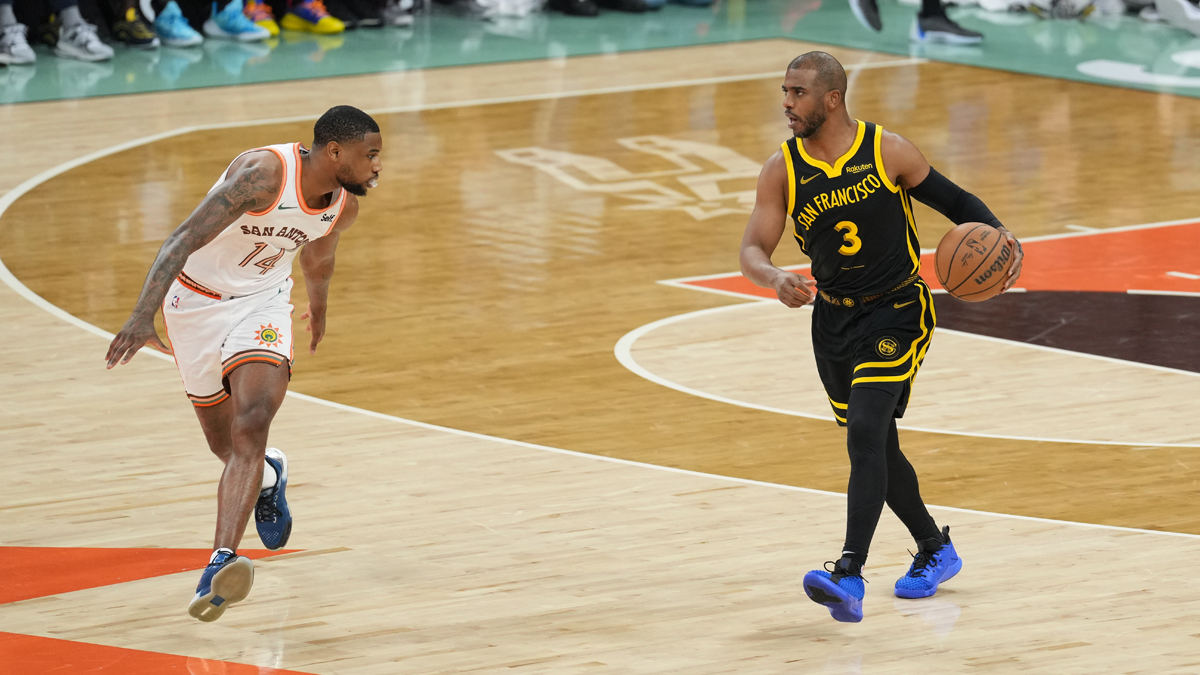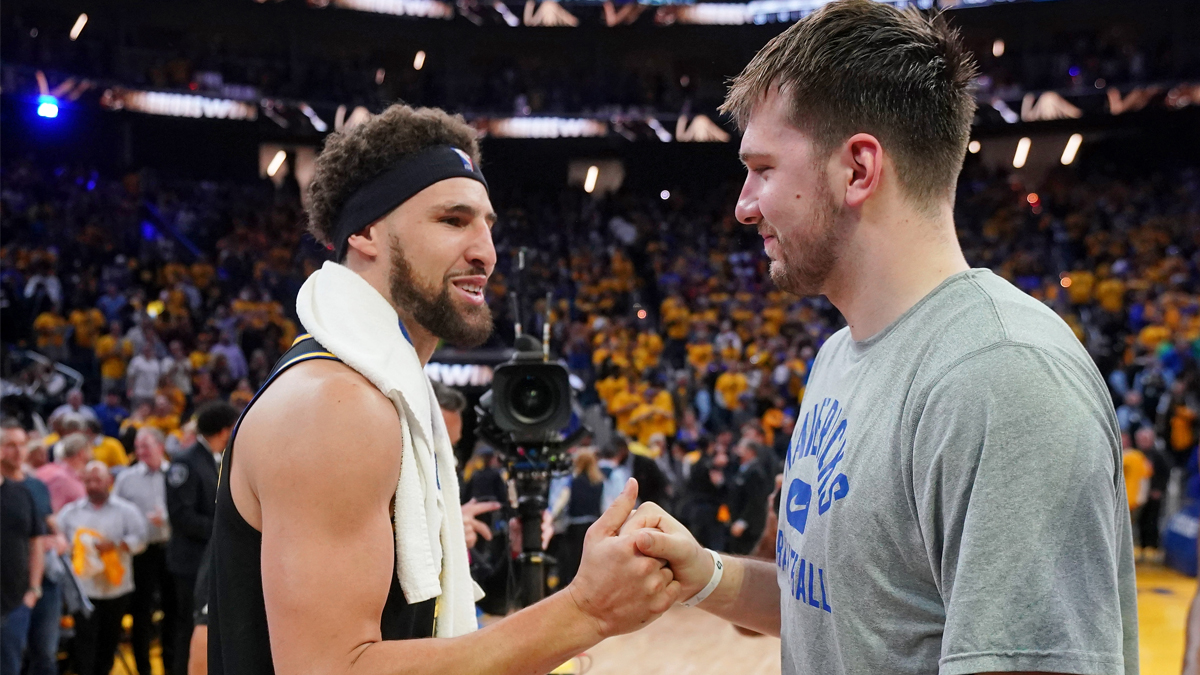Programming note: Tune in to "Race in America: A Candid Conversation" tonight on NBC Sports Bay Area at 8 p.m and streaming here.
David West is 6-foot-9, a muscular 265 pounds and spent 17 seasons barely submerging his inner rage beneath a thick layer of skill and emotional willpower. His fury always was visible, though, and nobody wanted a wisp of his smoke.
And now, two years after his final game delivered the second of two championships won as a member of the Warriors, West fully realizes his biggest fear.
Stay in the game with the latest updates on your beloved Bay Area and California sports teams! Sign up here for our All Access Daily newsletter.
That the day or night will come when his young son, David Benjamin, has a fateful encounter with a highly nervous, easily triggered or simply racist police officer.
“You know, my son is 5-3, 120 pounds. He's 11 years old,” West says. “So, he is a big kid. And I'm scared to death for him.”
West was speaking as a member of a three-man panel, including Rep. Eric Swalwell and Warriors coach Steve Kerr, on NBC Sports Bay Area’s “Race in America: A Candid Conversation.” The one-hour discussion will be shown Friday night at 8.
The dread that stalks West is close to all black fathers. We’ve seen, read and heard enough to know the streets can be particularly dangerous for black boys, and not only because of gangs. What cranks up the anxiety within West is the possibility of his son becoming a statistic at the bullet of someone sworn to “protect and serve.”
Golden State Warriors
Fathers know the story of 12-year-old Tamir Rice, killed by a Cleveland cop. They may not know of 13-year-old Tyre King, killed in 2016 by a cop in Columbus, 140 miles south of Cleveland. They most assuredly know of 18-year-old Michael Brown, killed by Ferguson, Mo., officer in 2014. They may or may not know of 18-year-old VonDerrit Myers Jr., shot by an off-duty St. Louis officer.
Every black father knows, and some have seen the horrible video, of 17-year-old Laquan McDonald being shot in the middle of the street by a Chicago officer.
In many cases the victim was unarmed. In some, not even posing a real threat. Trayvon Martin, 17, was walking home eating Skittles when George Zimmerman played jury, judge and executioner.
“That's my biggest fear,” West says West, who also has a daughter, Dasia. “My children.”
Little David likes basketball. He plays video games. Writes. Draws. And, in case you’re curious, he comes home with impressive report cards.
But he’s not allowed to do as much as he’d like, perhaps go as far away from home as he’d like.
“My wife (Lesley) is like, ‘You gotta send him’ ... I don't want to send him to school,” West says. “I don't want him out of my sight.
“It's that serious for us his parents.”
The fear is not an overreaction within black families. It is a level of apprehension white parents are privileged to avoid. It’s not that cops don’t kill white kids. They do. But this happens less than half as often, even though there are five times as many white teens as black.
When Rutgers University last year conducted a study analyzing deaths involving law enforcement, it concluded that roughly 1 in 1,000 black men and boys in America is likely to be killed by police. The study, conducted from 2013 to 2018, found black men and boys are 2.5 times more likely than white men and boys to be victimized.
“That 1-in-1,000 number struck us as quite high,” sociologist Frank Edwards, who organized the study, told the Los Angeles Times. “That’s better odds of being killed by police than you have of winning a lot of scratch-off lottery games.”
[RELATED: Warriors owners give powerful statement on race relations]
It’s not just the unrelenting tales in 2020 – the latest being the killing of George Floyd – that has West on edge. He is haunted, too, by what he experienced as a 9-year-old in Teaneck, N.J., where Phillip Pannell, a black teen, was fatally shot in the back by Gary Spath, a white officer.
Spath faced a manslaughter charge but was acquitted.
These are things one does not forget because so many similar cases continue to arise.
There also is hope that better days lie ahead. West is encouraged by the energy generated by throngs of multicultural groups, mostly young, demonstrating all over the world in the wake of Floyd’s death.
“The contribution that we want to make is moving this environment, moving the society forward, so that it's better later than it is for us now,” he says. “And that's in service to our children in the future generations.”


